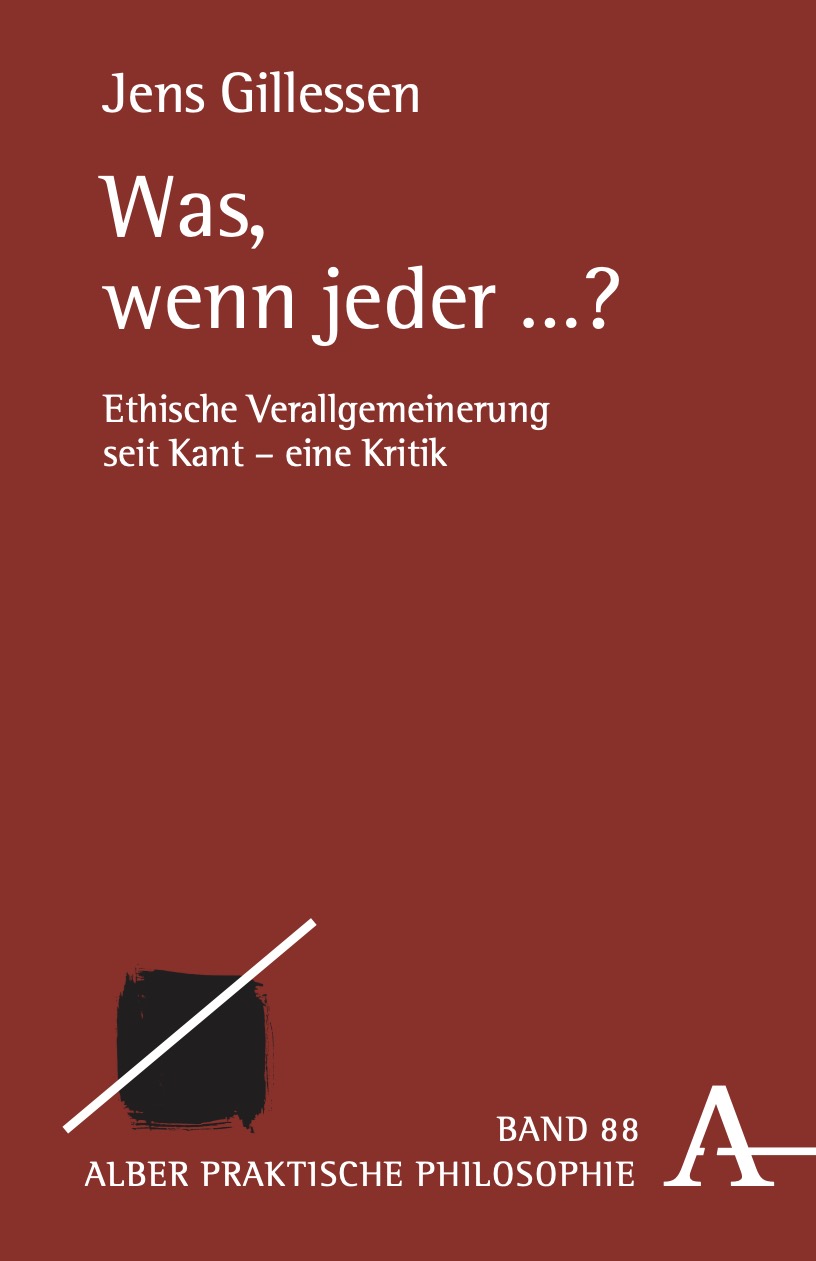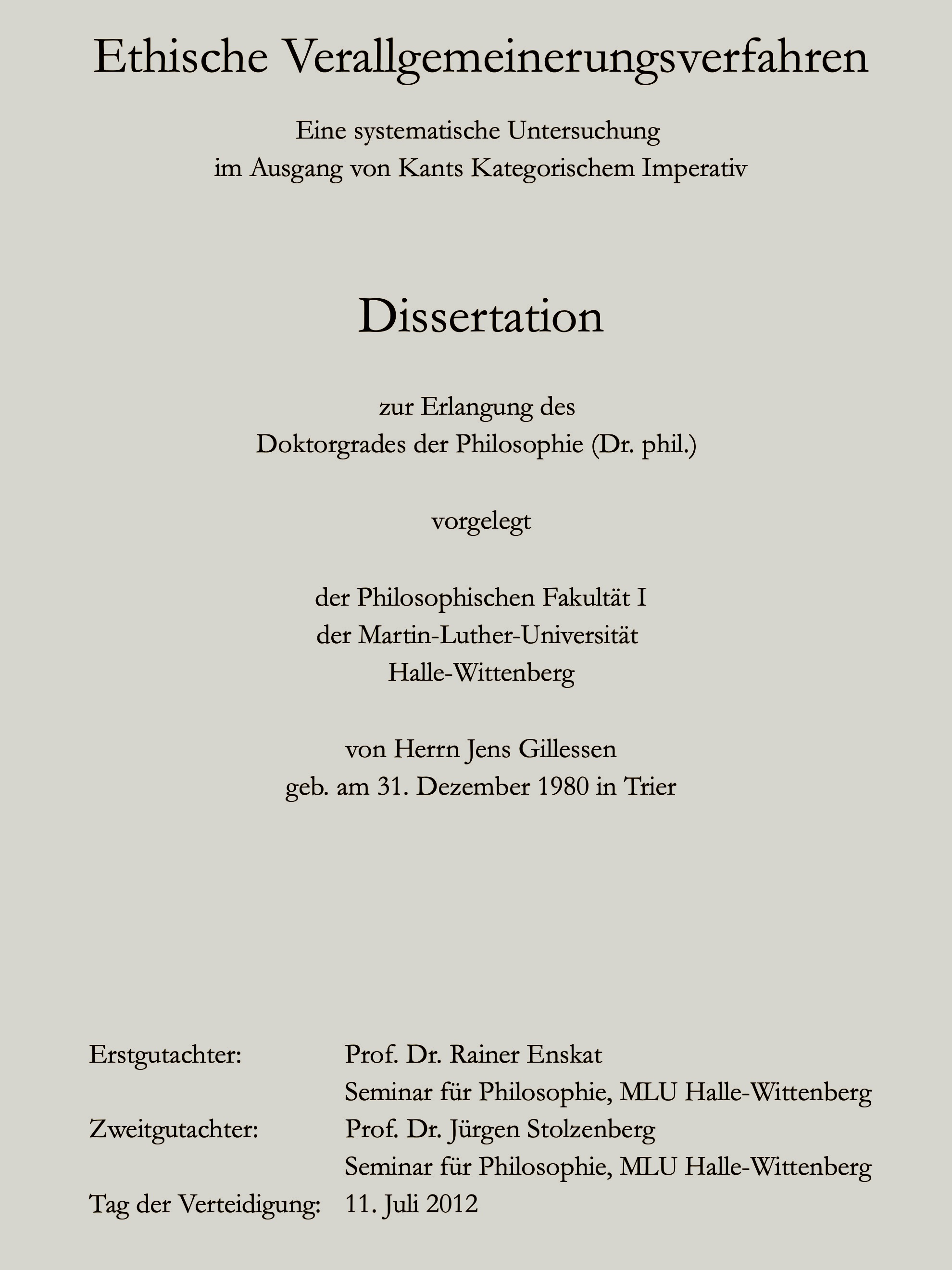This page summarizes my philosophical research past and present. At the bottom you can find a lecture sample.
My work is about how we ought to be and live. That is a very wide field, within which I've been thinking about a number of issues, some more general, some more specific.
Moral Contractualism
How to justify normative judgments in morals and politics? How to argue at the most basic level that we ought, or, should, or must do certain things, and avoid doing others? I’ve come to think that by comparison, theories such as T. M. Scanlon’s contractualism sketch the most promising method of answering such questions. According to Scanlon, each of us has strong reason to live together peacefully with one's fellow human beings under specifiable moral rules. What is this reason? It is that such life is intrinsically valuable. And which are the 'specifiable rules' we have reason to live by? Those which no one who shares the aim of living peacefully together could reasonably reject.
While many philosophers (me included) find normative theories such as Scanlon’s highly appealing, these theories do suffer from a number of known problems. I therefore think that Scanlon’s theory actually stands in need of partial revision before it can be invoked in trying to justify one’s stance on how we ought to live. That is what I try to do in my habilitation thesis.
Gillessen, Jens (2025): Contractualism and the Numbers. Revision of a Moral Ideal. Habilitation thesis, 642 pp., submitted to the Faculty of Social Sciences and Philosophy of Philipps-Universität Marburg (since August 2025).
Climate Science & Climate Ethics
Climate Ethics is about what we ought to do regarding climate change. One thing we surely ought to do, many people think, is to inform people about climate change. I've written about why and how this needs to be done, from a philosophical angle.
Gillessen, Jens (2020): „Klimakrise, Klimaskepsis – und Philosophie?“, blog entry for praefaktisch.de, ed. by Norbert Paulo and Gottfried Schweiger (Salzburg), approx. 1,600 words. Translated title: ‚Climate Crisis, Climate Skepticism – and Philosophy?‘
Gillessen, Jens (2018): “Aufklärung durch die Klimawissenschaften. Worüber und Wozu?", in Wissenschaft und Aufklärung / Science and Enlightenment, special issue of Angewandte Philosophie. Eine internationale Zeitschrift / Applied Philosophy. An International Journal, issue ed. by R. Enskat and O. R. Scholz, Göttingen: V&R unipress, pp. 127-148. Translated title: ‘Climate science informs the public. Of what, and why?’.
Action, Intention, Reasons & Rationality
Surely we ought to be reasonable and rational in our beliefs, planning and acting. I've been trying to make up my mind about what that actually means. I've also been working on whether it's true at all. And: Can anything reasonable be said about why we ought to be rational?
Gillessen, Jens (2021): “Reasons to be Rational”, in Grazer Philosophische Studien 98, pp. 359-394.
Gillessen, Jens (2018): “Do Intentions set up Rational Defaults? Commitments, Reasons, and the Diachronic Dimension of Rationality”, in Pacific Philosophical Quarterly (1) 99, pp. 29-64.
Gillessen, Jens (2018): “Rationality, Virtue, and Higher-Order Coherence”, in Dialectica. International Journal for Philosophy (3) 72, pp. 411-436.
Gillessen, Jens (2017): “Flat Intentions—Crazy Dispositions?”, in Philosophical Explorations (1) 20, pp. 54-69.
Gillessen, Jens (2017): “Reasoning with Unconditional Intention”, in Journal of Philosophical Research 42, pp. 177-201.
Kant's Categorical Imperative & Generalization Ethics
When I began to think about normative questions, I first attempted a rational reconstruction of Kant's normative theory. This theory, as I see it, comprises of the Categorical Imperative (CI), Kant's normative ethics and his normative theory of law.
While Kant remains important and inspiring in many respects, one upshot of my work in this field is that he was seriously mistaken about the normative principle of ethics and law. Perhaps even more importantly, Kant scholars who tried to mend perceived flaws and problems of Kant's principle have failed.
As a result, the whole idea of moral self-legislation needs to be replaced with something Kant-inspired, but more viable. I hope that moral contractualism can be, or one day become, this replacement (see above).
Gillessen, Jens (2018): “Relevante Handlungsbeschreibung und Universalisierung. Zu William D. Ross‘ Kritik an Kants Anwendung des Kategorischen Imperativs”, in: Natur und Freiheit: Akten des XII. Internationalen Kant-Kongresses, ed. by V. Waibel, M. Ruffing and D. Wagner, Berlin/Boston: De Gruyter, pp. 1849-1860. Translated title: ‘Relevant action description and universalization. On William D. Ross’ criticism of Kant’s application of the Categorical Imperative.’
Gillessen, Jens (2016): “Kants ethischer Kohärentismus. Zur Rechtfertigung des Kategorischen Imperativs”, in Kant-Studien (4) 107, pp. 651-680. Translated title: ‘Kant’s Ethical Coherentism. On the Justification of the Categorical Imperative’.
Gillessen, Jens (2016): Review of „Reza Mosayebi, Das Minimum der reinen praktischen Vernunft. Vom kategorischen Imperativ zum allgemeinen Rechtsprinzip bei Kant”. Extensive critical review, in Methodus. Internationale Zeitschrift für Philosophie der Neuzeit 8, pp. 96-112.
|
The book is composed of the first four chapters of my doctoral dissertation (after thorough revision). The title translates as: "What if everyone...? Generalization in Ethics Since Kant – A Critique". The official abstract runs as follows: "Moral criticism sometimes takes the form of asking: What if everyone acted the way you do? Such criticism seems to be grounded in some form of moral reasoning, which has in the past been the aim of various efforts of clarification, refutation and defense, in the guise of interpretations of Kant's Categorical Imperative as well as in Analytic Ethics. The book forms the first monographic attempt since decades to establish systematic order among contributions to the field. It examines a wide spectrum of generalization procedures with respect to the plausibility of their outputs, analyses their shortcomings and arrives at novel results."
|
|
|
|
Gillessen, Jens (2012): Ethische Verallgemeinerungsverfahren. Eine systematische Untersuchung im Ausgang von Kants Kategorischem Imperativ, Dissertation University Halle-Wittenberg. This is my doctoral dissertation. The title translates as "Ethical Procedures of Generalization. A systematic investigation starting from Kant's Categorical Imperative". Quite a mouthful. Publishing houses refused to print the dissertation in full length, so chapters 5 and 6 had to be omitted from the 2014 book (see above). This is very unfortunate; after all these chapters refute the most sophisticated attempts to defend generalization procedures such as Kant's 'Contradiction in Conception' (CC) and 'Contradiction in the Will' (CW) tests against age-old counter-examples. Since I had to turn to new projects soon after completion, much of the material of chapters 5 and 6 has long been practically inaccessible. I still think these two chapters give the most comprehensive response yet to Kantians' unceasing but futile attempts to revive Kant's moral tests.
|
Teaching
I have been teaching philosophy courses at German universities since 2013. A list is available on request. In the winter semester 2020/21, I was entrusted with giving a lecture titled "Introduction to Practical Philosophy". Due to the Covid-19 pandemic, the lecture had to be recorded for a remote audience. On the upside, I am now able to share one of those videos with the public.


